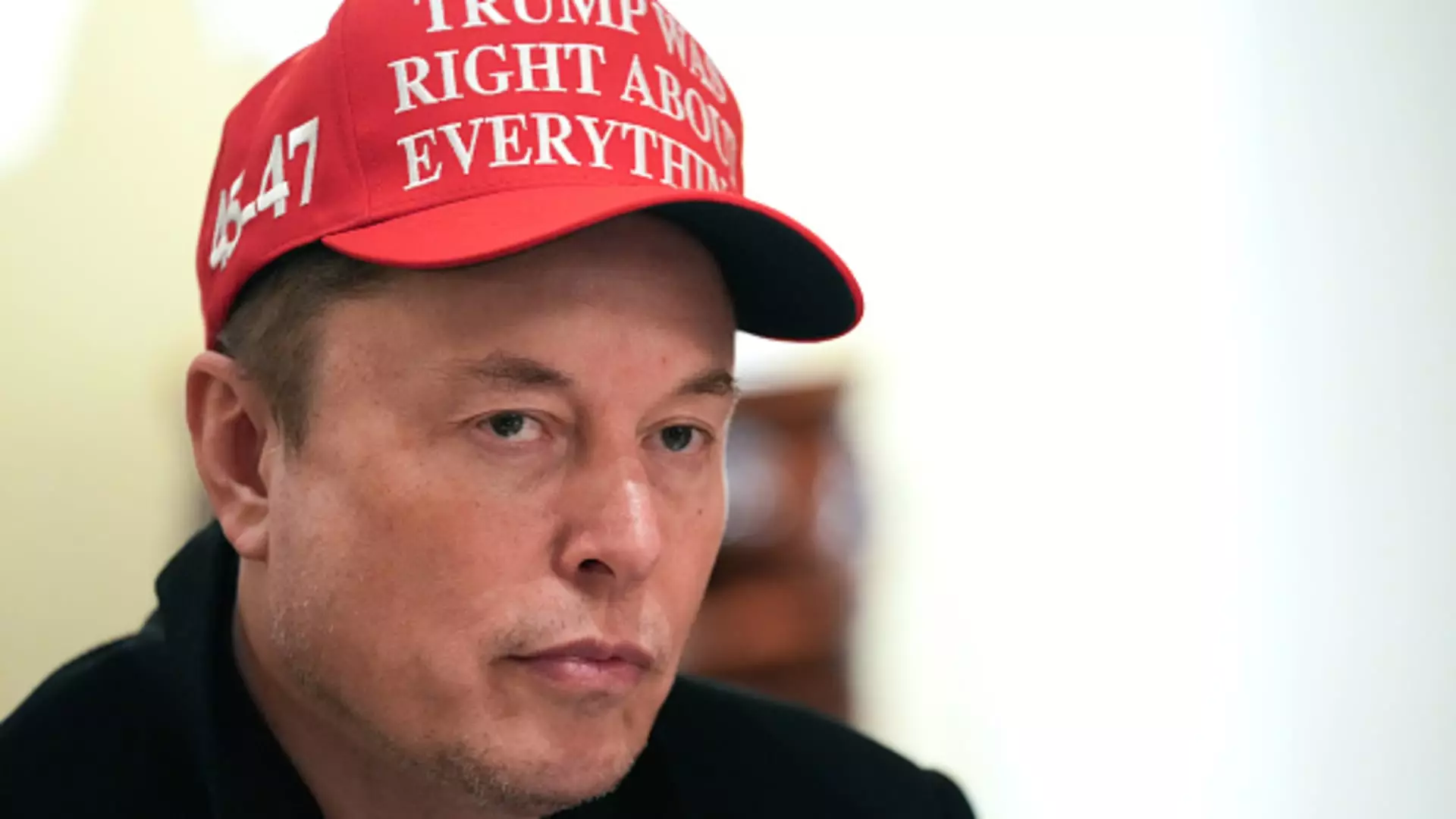In recent months, Tesla has found itself in a precarious position, closely entwined with the reputation of its CEO, Elon Musk. The financial markets have responded with a pronounced sell-off of Tesla stock, reflecting a growing disenchantment among investors. The root of this sentiment appears to lie in the broader socio-political activities of Musk, which many believe are undercutting Tesla’s image as a leader in the electric vehicle (EV) sector. Stripping away the gloss from the brand, investors now face a reality where public approval, once a stronghold, has frayed significantly.
Public perception has always played a pivotal role in the success of consumer-focused companies, and Tesla is no exception. That 47% of the population views Tesla unfavorably compared to only 27% that express a positive sentiment raises troubling questions about the brand’s future. This contrasts sharply with consumer attitudes towards traditional automotive stalwarts like General Motors, where a substantive share of the public holds a favorable outlook.
The Musk Factor: Love Him or Hate Him
Elon Musk is undoubtedly a commanding figure within the tech landscape, yet he is also a lightning rod for controversy. In the recent CNBC All-America Economic survey, a stark dichotomy emerges: half of the respondents harbor negative views of Musk. The divisiveness of the public opinion surrounding him cannot be overstated—while a notable 36% appreciate his contributions, a concerning 16% remain indifferent. This polarization reflects deep ideological rifts in the current political climate, notably with Democrats viewing Musk highly negatively, while Republicans are rallying for him.
Musk’s alignment with controversial political ideologies and figures has eroded his appeal, especially among younger demographics and groups that historically embrace progressive values. This is illustrated starkly by the net approval ratings among Democrats, who have soured on Musk to the tune of an -82 rating. For the burgeoning group of potential EV buyers, Musk’s actions raise critical questions about Tesla’s branding strategy moving forward.
Challenges with EV Perception
While there is a notable interest in electric vehicles among Americans—33% express a favorable view—there exists a troubling disconnect between this enthusiasm and the perceived value of Tesla as a company. Micah Roberts, a partner at Public Opinion Strategies, has pointed out that while Tesla has captivated audiences who may not be likely to purchase an EV, more serious buyers are expressing concerns over the company’s image. The 35% of Americans negatively disposed towards EVs presents a double-edged sword for Tesla: the market is eager for electric solutions, but skepticism clouds the Tesla name.
Demographic trends also reveal a schism in opinions regarding EVs. Young adults, aged 18-34, express both a deeper affinity for electric vehicles (+19) but simultaneously reject Tesla with a staggering -23 rating. Among independent voters, feelings are similarly fractured and uneasily balanced. For Republicans who champion Tesla, their lukewarm feelings towards EVs as a whole present unique branding challenges for Tesla’s outreach efforts.
In sum, the road ahead is laden with both risks and opportunities for Tesla. The key question remains: can Musk and his company reclaim a unified, positive image in the face of such divisive public debate? The urgency for Tesla is clear—bridging the gap between public sentiment and product perception will be crucial to their long-term viability.

